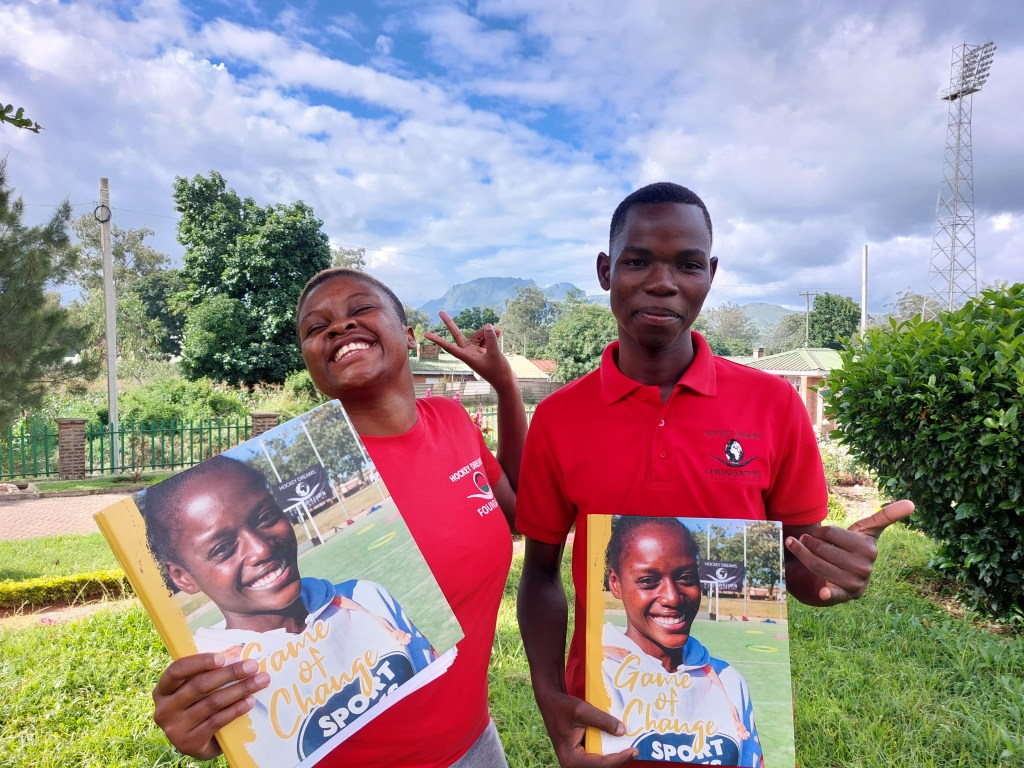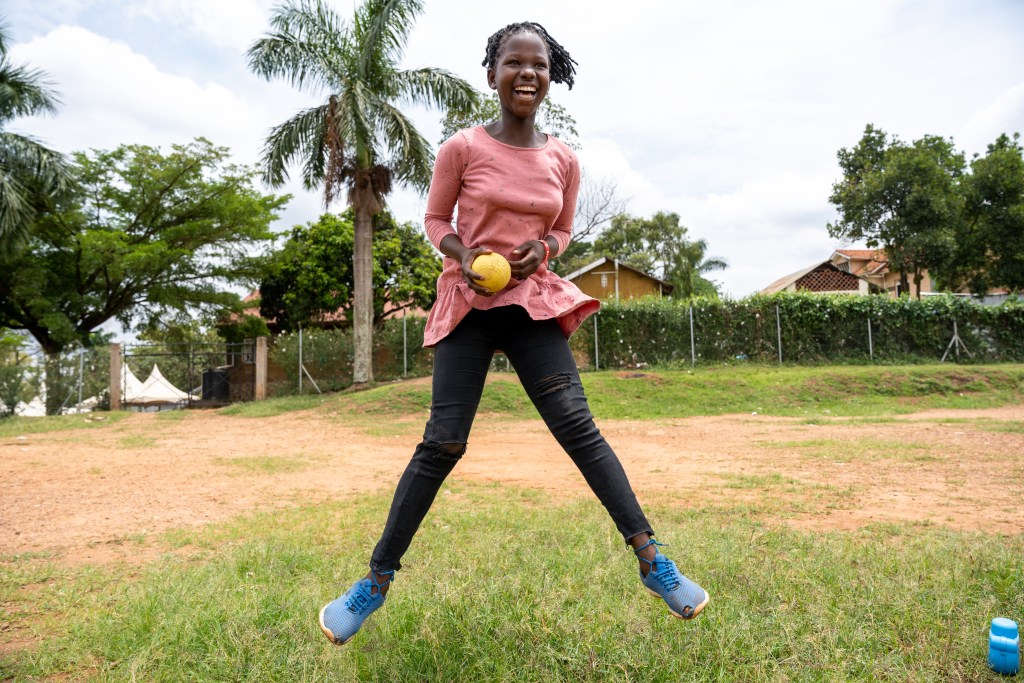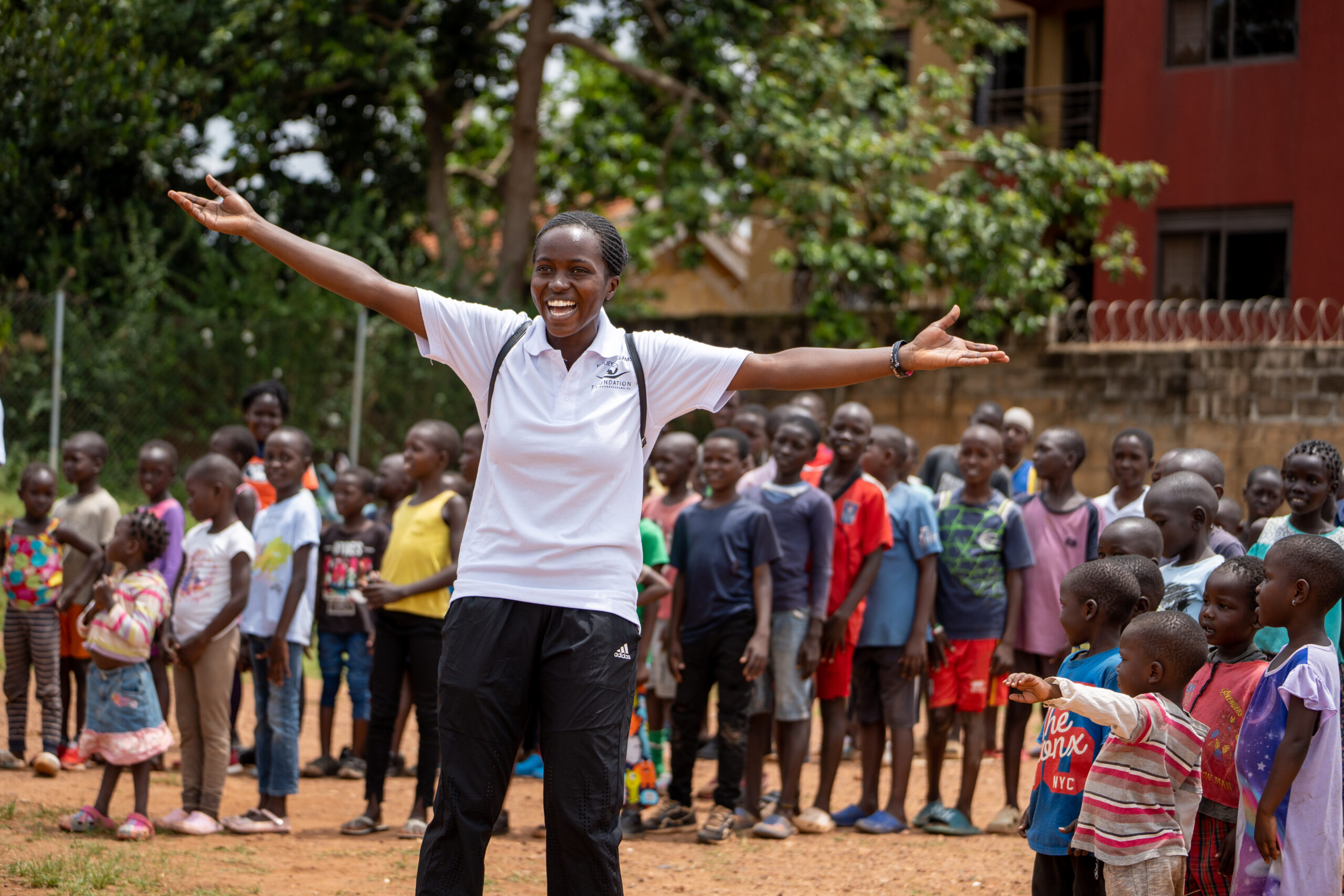Hockey Dreams Foundation’s core fundamentals are built on the idea that sports and its benefits help to better lives. For both the individual and its community. Sports improves many essential assets in life – with education and personal health as main points. Imagine what happens if you blend sport with education. We strongly believe in personal and collective growth with the help of Sport for Development (S4D). In this article we would like to elaborate on these beliefs: Why is Sport for Development our way of doing things? How do its guidelines help achieve the Coaches’ goals to become game changers and make a real impact to better lives? In other words: Why and how Sport for Development works.
Sport for development: a definition
Sport for development (S4D) refers to the use of sport, or any form of physical activity, to provide both children and adults with the opportunity to achieve their full potential through initiatives that promote personal and social development (UNICEF: Getting into the Game – Report Summary).
Why it works: improving education, skills and job market outcomes
In many projects around the world, we see that the mix of learning and sports is a rich combination. Its benefits can help people to find jobs, learn entrepreneurial skills, or re-enter the formal education system. Within Hockey Dreams, we offer an integrated programme called the Hockey Dreams Coach Academy.
The Academy and its programme helps our pupils (hockey coaches) to learn and train skills and competences, and to adapt these into the job market. Think of leadership skills, presentation skills, giving and receiving feedback, improving teamwork, writing official documentation, and process tracking.
Hockey Dreams Coaches who are in the final phase of the Academy, or Graduates that left the programme, are recognised for their competences and are more likely to secure formal employment or start their own business.

Why it works: stimulating socialising and opening up human qualities
Socialising is key in the development of Coaches. Sports indulges to interact and collaborate with one another in a way that a group listens and acts upon to reach their collective goal. As a result of doing so, values are adopted and trained, like leadership, willpower and the ability to work together. The acquired qualities are useful anywhere in life and help in many areas of life.
Why it works: improving the emotional state and wellbeing of the community and coaches
Feeling cheerful and optimistic makes life more effortless, and obviously more fun. Sports stimulates the brain and makes you feel better, and therefore Hockey Dreams believes that sport is a great starting place for making this happen in life. A good mental health and wellbeing help you and your relatives to feel more positive and able to get the most out of life.
During training sessions, evaluation plays an important part. The Coaches always ask the Kids what they can do better, or how they think they can help others next time.
Why it works: helping to cope with downs in life
Another standard Hockey Dreams is living by is that ‘it’s okay to lose’. Learning to lose is an important lesson for the Coaches and Kids. Being a ‘good loser’ takes strength and practice. Coping with unpleasant experiences and disappointments helps with bouncing back: recovering yourself and your team and community members. Playing sports helps channel negative feelings and is therefore most important in the development of Coaches and Kids.

Why it works: bringing people together and opening up the community
Sports and everything involved brings people together. Hockey Dreams Coaches get to learn new people from different backgrounds and social classes. People who rarely meet now meet each other, thanks to the greatness of sports. Partnerships, friendships and networking help Coaches to open up new doors in life.
A circle of coaches, players, volunteers and audience is a get-together that’s beneficial for the entire community. Sport promotes team cohesion and S4D stimulates higher participation-levels, the willingness to contribute, a higher trust factor, and therefore a higher social capital – which leads to understanding and sharing values (OECD Insights: Human Capital). It’s proven that these factors and developments can lead to lower crime, higher development, and social inclusion.
Why it works: teaching human values
A prominent chapter of the Hockey Dreams Programme is the human values that are taught. Both the Kids and the Coaches learn them not only for themselves, but to spread among their siblings and friends. The values and lessons are based on the importance of respect for one another. Keywords and lessons included are the significance of participation, not acting on violence, and the role of gender equality, for example.
During weekly training sessions, and other events that the Coaches organise throughout the year, social topics play a big role. The Coaches develop themselves as more than a sports coach, they become true mentors to the Kids.
Why it works: improving the human physique
Sport helps to improve the physical self. The Hockey Dreams Kids and Coaches learn that sport promotes good health and reduces the risk of letting in illness into the communities.
Sport helps to keep the doctor away, but it also helps with everyday activities. Simply because your body is stronger and can undergo activities more easily, as sport boosts both your energy and motivation levels. Sports too help improve your overall self-image and therefore your self-confidence. In conclusion, a better physical state equals a better emotional state.
A real change to better lives
Sports and its (social) programmes work. Sport for Development is no guarantee, but a great tool to kick off development and to better communities and its lives. Important values, such as responsibility, are built on sport fields and then applied in the Coaches’ and Kids’ homes, classrooms and jobs. Education and sport may lead to steady jobs, but also to a healthier mental and physical state: a happier self, a happier community. It proves us that sports and its benefits help to better lives. We feel Sport for Development can make a real change, and we will continue to live by its values for a long time to come.





